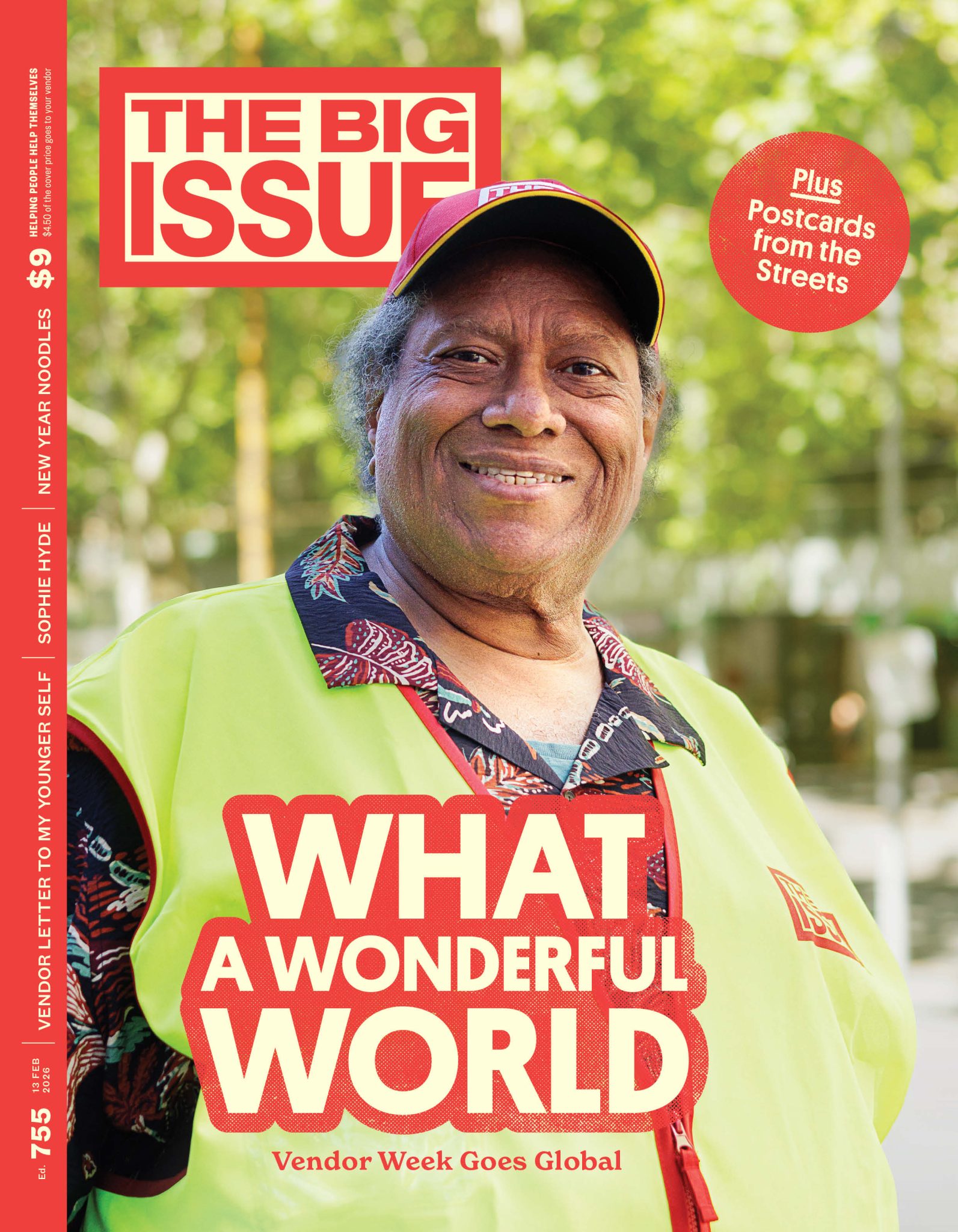The pull of Xiaole Zhan’s mother tongue – over crackling phone lines and video chats – is an anchor to their memory.
Māmā sometimes turned the lights on at night after forgetting to close the curtains in the kitchen, where the windows, as transparent as an aquarium or Edward Hopper’s Nighthawks, faced the street and looked to passers-by. Anyone could have peered into the scene: Māmā on the phone while I sat on the kitchen floor, my knees to my chest, my bare soles cold against the linoleum. Back then, Māmā always called from the kitchen landline, bringing a chair right up to the wall where the phone was tethered. She called her mother, my pópo, for hours into the night. When I imagine the scene now, I think of how the coil of the phone was like an umbilical cord. Māmā was the only child living abroad in Aotearoa, far from Pópo, while her older brother and sister, my jiù jiu and yímā, visited Pópo often in Shenzhen.
Pópo could only speak Cantonese, a language I spoke when I was a toddler living with Pópo for a year in Shenzhen, while Māmā was in Aotearoa attempting to obtain permanent residency. By the time I had moved to Auckland at the age of two, Māmā had decided to raise me in Mandarin so that I wouldn’t be distracted from learning English. I quickly forgot my mother tongue. Among countless dialects, Mandarin was the language of the capital and was dictated to be the language that one must learn to be heard and taken seriously. Māmā learned to speak Mandarin with a precise accent. When Māmā was a child, her greatest dream was to someday leave her childhood village in rural Guangdong and live in a big city. Māmā once told me that, the further up you hold your chopsticks, the further you would stray from home. She smiled because she held her chopsticks right at the very ends of the stalks.
Sometimes, being afraid to sleep without Māmā at night, I sat on the floor next to her while she was on the phone, listening to the Cantonese rolling off my ears. Seeing me there, Māmā would wave her hands in my direction. She would press the phone into my cheek, forgetting that I didn’t understand. I protested, Wǒ tīng bù dǒng, I don’t understand, but Māmā would leave me on the phone, saying, Speak Mandarin. Pópo understands. I would say a meaningless sentence or two, Pópo hǎo ma, How are you Pópo? following Mama’s instructions and Pópo would respond in words meaningless to me. I grew to dread the phone calls. Pópo would talk to me in continuous streams of Cantonese. She would talk even as I stayed silent, as if she were in prayer with someone standing just beside me.
Māmā called me one day a year after I had moved to Naarm for university. She told me that Pópo had passed away. The global lockdowns had made it impossible for the family to gather in China to be with Pópo. Māmā cried over the phone. There wasn’t time for a funeral before the body was cremated. My cousins were the only ones in Shenzhen while the borders were still shut, and they showed the family Pópo in the open casket via a WeChat group call. I had never heard Yímā cry until that day and, like how she talked and laughed, she cried loudly. Between her sobs, she spoke a short sentence in Cantonese. One by one the microphones on the group call unmuted to join her: yat lou hou jau.
I don’t remember much about Pópo. I grew impatient each time I visited Shenzhen as a child, being unable to understand the Cantonese she spoke to me. When I was eight or nine, Pópo heard from Māmā that I loved pork belly soup. Pópo cooked so much pork belly each time I visited that, by the end of the trip, I had grown sick of the flavour and pork belly was no longer my favourite food.
I wish I could peer into the memories of childhood that Māmā recounts to me as easily as through a window: how Pópo laughed when once she had placed one of my favourite snacks as a toddler on top of a drawer out of my reach and I had pulled out every drawer into a staircase to reach the treasure. I wonder at all those lost words that Pópo had once spoken to me, where they went. As the microphones on our family WeChat video call unmuted one by one to join Yímā’s voice, I remembered enough Cantonese to understand the simple phrase, as if hearing briefly the memories of someone standing just beside me. I joined the family prayer: yat lou hou jau. A safe journey.
Xiaole Zhan is a composer and writer based in Naarm and the 2024 Kat Muscat Fellowship recipient, the winner of the 2023 Kill Your Darlings Non-Fiction Prize and the winner of the 2023 Landfall Young Writers’ Essay Competition.
First published in ed#710
